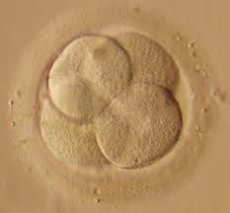Embryoscope - a development that increases the success rate of fertilization by 50% (video)
Last reviewed: 16.10.2021

All iLive content is medically reviewed or fact checked to ensure as much factual accuracy as possible.
We have strict sourcing guidelines and only link to reputable media sites, academic research institutions and, whenever possible, medically peer reviewed studies. Note that the numbers in parentheses ([1], [2], etc.) are clickable links to these studies.
If you feel that any of our content is inaccurate, out-of-date, or otherwise questionable, please select it and press Ctrl + Enter.

The new development increases the success rate of the fertilization procedure by 50% and enables future parents to follow the development of their child from the moment of conception. The new approach is based on a microscope that monitors the condition of a fertilized egg continuously for 5 days.
And this means that all sorts of anomalies will be discovered immediately. In those cases, it will be possible to refuse a defective ovule. Placing viable egg cells in the uterus significantly increases the rates of successful intrauterine development, the study showed.
Until recently, doctors had to remove the embryo from the incubator and individually examine it under a microscope. It was possible to do this only once a day, which is obviously not enough for an adequate assessment.
Embryoscope - the newest approach in reproductive technologies, which drastically changes the situation. After the introduction of spermatozoa, the egg is immediately placed in the embryoscope, where it will develop before the eyes of professionals until it is transplanted to the patient. Thus, the microenvironment of the incubator is not violated.
To date, more than 1500 embryos of 200 patients have been tested. And, if previously only one woman of three could become pregnant, now - every second woman. Observation of the embryo will cost the patient 750 feet per cycle. As a result, parents receive videos with the development of their child, starting with the embryo.

